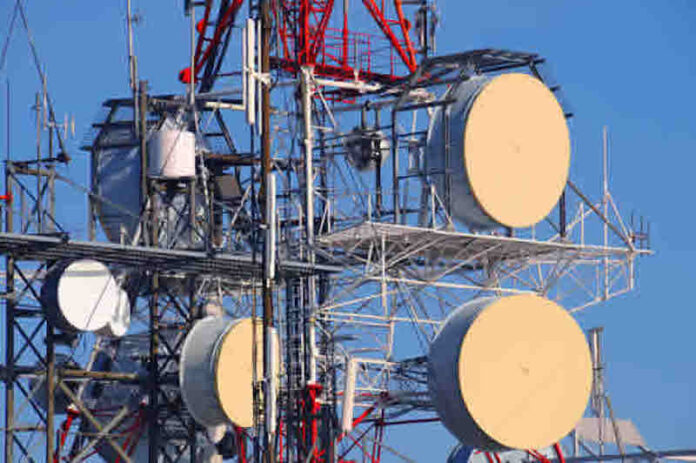•Want RoW pegged at N145/LSQM, fibre damage criminalized
•Seek simplification of numerous taxes, payment of spectrum charges in naira
Chigozie Amadi
Telecommunication companies operating in Nigeria have called on the federal government to criminalise offences that involve damage to major infrastructure, increase penalties imposed on offenders as well as simplify the multitude of taxes paid by operators.
In a new report by Global System for Mobile Communications Association, GSMA, the global body for the entire mobile ecosystem, the telcos also demanded a consistent and fair system of Right of Way (RoW) charges and administration across the entire country.
“In order to achieve this, the following measures should be implemented: All government authorities at national and sub-national levels should apply the national maximum RoW fee of N145 per/LSQM adopted by the National Economic Council (NEC) for the deployment of fibre across all states in Nigeria.
“There should be a single point of contact in each state for the RoW application process. This process should be digitalised in all states in order to accelerate the process for managing Row applications. The duration for the approval process should be limited to a maximum of one month,” they argued.
The report further called for the simplification and reduction of the tax burden on the mobile sector, recommending that a comprehensive review of the level and impact of taxation on the sector and the government’s digital economy objectives is undertaken.
It advised that the review should consider a single digit tax system, harmonise RoW charge agreement across all states and remove changes in the Value Added Tax (VAT) Act, which now subjects radio and television masts, transmission lines, and cell towers to VAT payment.
According to the GSMA report, government should remove Withholding Tax at 10 per cent on income of tower infrastructure providers as well as completely remove excise duty on telecoms services from the Finance Act.
While calling for the lowering of import duty on goods from outside Africa, the report stated that recent amendment to Section 32 of the Companies Income Tax Act removed capital allowance on telecommunication goods and services, and should be re-instated.
Aside its persistent call for tariff increase, the telcos also called for the lowering of the 7.5 per cent VAT on diesel importation for the sector, clarification of the powers of federal, state, and local governments regarding taxation and alleviation of the ambiguity surrounding tax obligations.
“Taking these actions reduce the operating costs of the industry and free up additional revenue for investment into network infrastructure and services. It would feed also through into lower retail prices, subject to the Nigerian Communications Commission (NCC) tariff regulations,” it argued.
Besides, it said that the creation of a regulatory environment that supports sustainable investment was necessary as well as adapting to one which is more supportive of sustainable investment.
“It is recommended that the following measures are adopted: Changing the basis for charging for spectrum fees from USD to Naira. Remove retail tariff price control regulations and focus tariff regulation on wholesale services such as interconnection.
“In the interim, if retail price controls are retained, there should be: Periodic tariff reviews, ensuring assessment of the costs of service provision in accordance with applicable legislation, to allow for adjustments to reflect the changing cost of inputs into the businesses and facilitate investment into improved network coverage and quality of service.
“There should be introduction of a more pro-competition tariff regulation where upper and lower price bands are set by NCC, and allows service providers to launch services without prior NCC tariff approval, provided tariffs are within such bands,” it stressed.
To increase adoption and access to digital technologies by consumers, it recommended support for digital skills programmes across target populations as well as reduce affordability barriers.
Besides, the GSMA report stated that there should be continued telecommunication infrastructure deployment and increased access points for digital government services.
In order to unlock financing for digitalisation of the economy, it urged the Nigerian government to consider policy options domestically such as: Enhancing transparency in the extractive sector through digitalisation of tax payments and records, digital verification of revenue data and reporting.
It further called the improved access to the tax system by strengthening digital filing of tax returns, automatic calculation and digital payment of taxes as well as leverage digital property records to strengthen the property tax system.

























